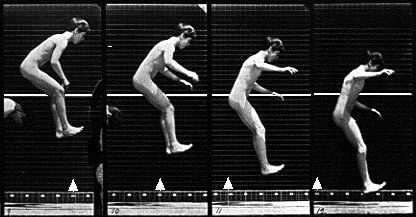Knowledge is Power
Michel Foucault continually brings up the idea of the “will to knowledge (Foucault).” What does this concept mean? Foucault considers all knowledge arbitrary. By keeping the sense of knowledge arbitrary, solely based on personal wishes, the overall power system may still continue functioning (Michel).
What is this power system anyways? The terms “power” and “knowledge” should be viewed as one. Without one, the other seizes to exist. Our actions are responsible for the elements of the power structures themselves. For instance, there cannot be “forensic DNA without police <or> medicine without the clinic (Michel).” Ultimately, power is not possible without the knowledge (Michel). People in a society are controlled by the fabric of knowledge that’s fashioning the body (Foucault). There is not one hierarchal power controlling this influence. The influence is crafted by the fabrics of every node of a societal net which ultimately shapes it’s people; the body. The body then can be viewed as the whole of society; a body of power; a body of creation. The power structure and influence of society shapes it’s people, just as a spider shapes his web. Every angle and connection on this web is accounted for and meticulously arranged to make a whole creation. Every aspect of society, every node, makes up an entire net of societal influence.
If someone knows something, that knowledge in itself is manipulative of the person. When someone fills out a census form for example, the boxes or lines that they are instructed to fill out, gives them a choice, but a limited choice. In this act of choosing a “title”, the title chooses the chooser. There are limitations as to what the person can decide upon, therefore, the realization in the “title” becomes a part of the decider. There are limitations with anything. There are limitations on what to write. The words that appear on this page have come from a person who chose to write the words. The knowledge embedded in this person’s “mind” has been revealed onto the page in a jumble of nonsense or sense, whichever may suffice.
We are controlled by our knowledge. The way people are raised controls them. If someone didn’t know any other way about something, how could they know any different? Their knowledge owns them. There are exceptions, of course, but for the most part, depending on how a child is brought up in society, depicts what they will know and what will control them. “…the will to knowledge has not come to a halt in the face of a taboo that must not be lifted, but has persisted in constituting—despite many mistakes, of course—a science of sexuality (Foucault 13).” In this passage, Foucault recognizes that the will to knowledge; the want to know more; has somewhat stopped, but has formed a science of sexuality. In relation to the knowledge-power concept, the “science of sexuality” is the knowledge portion of the equation and the “sex” is the power portion. There wouldn’t be science of sexuality if there wasn’t sex. This is a “cause and affect” type of relation. One of Foucault’s goals in talking about the term “knowledge,” is to bring forth the “will to knowledge;” a further want to know. He wants people to be imaginative in their thinking; to think outside of the box; outside of the monotonous way of thinking. This will-to-knowledge “serves as both their support and their instrument (Foucault 12).” To know more about something gives support for an idea; almost a better means for debate. The will to knowledge also gives someone an instrument or tool, which is the way to gain power.
Now, let’s move away from Foucault’s deployment of the word “knowledge” and see how his ideas differ from our ordinary understanding of the word. We can break away from Foucault’s deciphering of the word, to a more literal sense of this knowledge concept. The “mind” is an appropriate area to start. Our mind is a tool. This tool is a means of gaining more knowledge. What is the “mind” exactly? There really is no exact way of defining the “mind.” In fact, the specificities of the mind are not clear and are still open for debate. The mind is a term referring to “the center of human thought, individuality, rationality and recall (Live).” This mechanism or rather, machine is believed to have functions that solely belong to humans. The mind’s power can be affiliated or related to the term “brain power,” but the mind and the brain are different. The brain can be explained and studied scientifically, where the mind cannot be. This will-to-knowledge can then be viewed in a broader sense than just the will for more brain power. Your mind, whatever that may be, could be in fact yearning for more knowledge in a different sense than the brain would. This idea is a further recognition than the physical being; that of a physical brain. It is still unknown as to how the mind works and has been suggested to be capable of traveling beyond the body. This theory supports the idea that humans have supernatural abilities.
Michel Foucault brings new light to the knowledge concept and shows the importance in thinking creatively. We must see other means of understanding the world and everything in it. Intervene amongst the order and be a part of the disruption.
Works Cited
Foucault, Michel. The History of Sexuality. An Introduction. New
York: Vintage Books; A Division of Random House, Inc., 1978.
Live Science. “Mysteries of the Mind.” 2007. 09 October 2007
<http://www.livescience.com/mind/>.
“Michel Foucault. Power/ Knowledge.” 2001. 09 October 2007.
<http://www.colostate.edu/Depts/Speech/rccs/theory54.htm>.
“Oxford English Dictionary.” Knowledge. Oxford University Press. 2007.
09 October 2007 <http://0-
dictionary.oed.com.cals.evergreen.edu/cgi/entry/50127602?query_type=word&qu
eryword=knowledge&first=1&max_to_show=10&sort_type=alpha&result_place
=1&search_id=32ml-6bKJrR-13473&hilite=50127602>.
